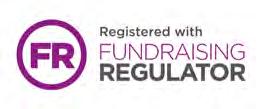2024–27 strategy
This strategy explains how we will improve children’s literacy by promoting a reading for pleasure culture in primary schools, with a focus on supporting children in the most disadvantaged communities.


We want every child to read



This strategy explains how we will improve children’s literacy by promoting a reading for pleasure culture in primary schools, with a focus on supporting children in the most disadvantaged communities.


We want every child to read


We are
to introduce our three-year strategy, outlining the scale of our ambition to improve children’s literacy.
We will prioritise the needs of children in disadvantaged communities who face the greatest barriers and for whom the benefits of reading can have the most transformative impact. We will harness the power of reading to change lives and drive social mobility.
Bookmark was set up in 2018 with a very simple vision: we want every child to read. Currently, more than 1 in 4 children leave primary school unable to read well. This disproportionately impacts children from disadvantaged backgrounds, who leave primary school on average a year behind their peers. The Education Endowment Foundation reports that only 10% of these children go on to pass English and Maths GCSE.1
Since our inception, we have been developing, piloting and rolling out literacy programmes. We use a data-led approach to make sure our services are as impactful as possible. We have also expanded to reach more areas of need and grown our service lines to provide a wide range of support and to help more children. From sending a small group of volunteers into just three schools in Camden, we have since delivered 124,505 reading sessions in over 319 schools. We have also supplied books, resources and grants to hundreds of additional schools. As a result, the children at our partner schools are better, more confident readers. One school reported that children made 11 months of reading progress after each receiving 6-12 weeks of support.
In 2023, we consolidated our learnings and developed a comprehensive theory of change. This focuses on reading for pleasure to make sure we fulfil our vision – we want every child to read. Reading for pleasure is recognised as a stronger indicator of future educational attainment than socio-economic status. However, recent research by the National Literacy Trust indicates that children’s reading enjoyment is at the lowest level in almost two decades. Nurturing an enjoyment of reading means that children read more, gain confidence as readers and, ultimately, improve their reading skills. We believe this is where Bookmark can have the most impact.
According to the National Literacy Trust’s research, poor literacy skills have been linked to lower life expectancy, in addition to poor mental health and unemployment. One of its studies shows the difference in life expectancy between children from communities with the highest and lowest vulnerability to literacy problems in the country is 26.1 years. 2
Reading can make a transformational difference to a child’s life. We know that literacy isn’t one-size-fits-all and that there is so much that goes into making a child a reader. That’s why our model is based around becoming a key literacy partner for primary schools.

1
2


Children need us now more than ever. We have big ambitions to expand our reach and increase our depth of support for children in the most disadvantaged communities. Over the course of the next three years, we aim to have benefited 500,000 children across 1,000 schools by improving reading levels and engagement on both a one-to-one and whole school level.
Thank you to everyone who has made it possible for us to support children on their paths to becoming readers. We are grateful to our board of trustees, the Bookmark team, volunteers, partner schools, donors and supporters. We look forward to implementing our plans for future growth to address the UK literacy challenge together, so that more children can experience the joy of reading to have a fairer start in life.
Emily Jack Chief Executive Officer
"Bookmark is a low-cost, highimpact programme that is proven to work."
– Teacher at a Bookmark partner school
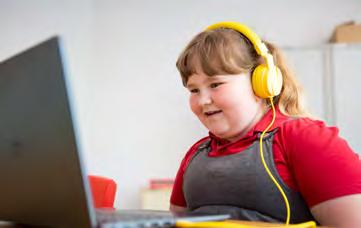

Sharon Pindar Chair of Trustees and Founder
1 in 5
children in the UK aged 5-8 say they do not have a book of their own at home.4
Schools that have an above-average intake of children eligible for free school meals were over
50% more likely
to say that they don't have a school library, compared with schools with a below-average intake (16% vs 10%). 5
£81 billion
Low literacy costs the UK economy every year. 3
children receiving free school meals report finding it difficult to see themselves in books. This compares with just over 1 in 3 (35.2%) who do not receive free school meals.9
Research from 2022 showed that the attainment gap between disadvantaged children and their peers
from the start of primary school to the end, escalating from 4.8 months to 10.3 months.6
In 2021, it was estimated that, in the UK,
seven
million
people (16.6% of working-age adults aged 16-65) have 'very poor' literacy skills.7
3 Cree, A., Kay, A., & Steward, J. (2022). The economic and social cost of illiteracy. World Literacy Foundation.
65% of prisoners are unable to read at the level expected of an 11-year-old.8
4 Picton, I. & Clark, C. (2023). Children and young people’s book ownership in 2023: A 10-year retrospective. National Literacy Trust.
5 Primary School Library Alliance (2022). Working Together Towards a Library In Every Primary School.
6 Education Policy Institute (2023). Annual Report.
7 Kerr, E. (2021). Paying the price: The cost of very poor adult literacy. Pro Bono Economics.
8 Ministry of Justice (2023) Prison Education and Accredited Programme Statistics 2022-2023.
9 Picton, I. & Clark, C. (2022). Seeing yourself in what you read: Diversity and children and young people’s reading in 2022. National Literacy Trust.
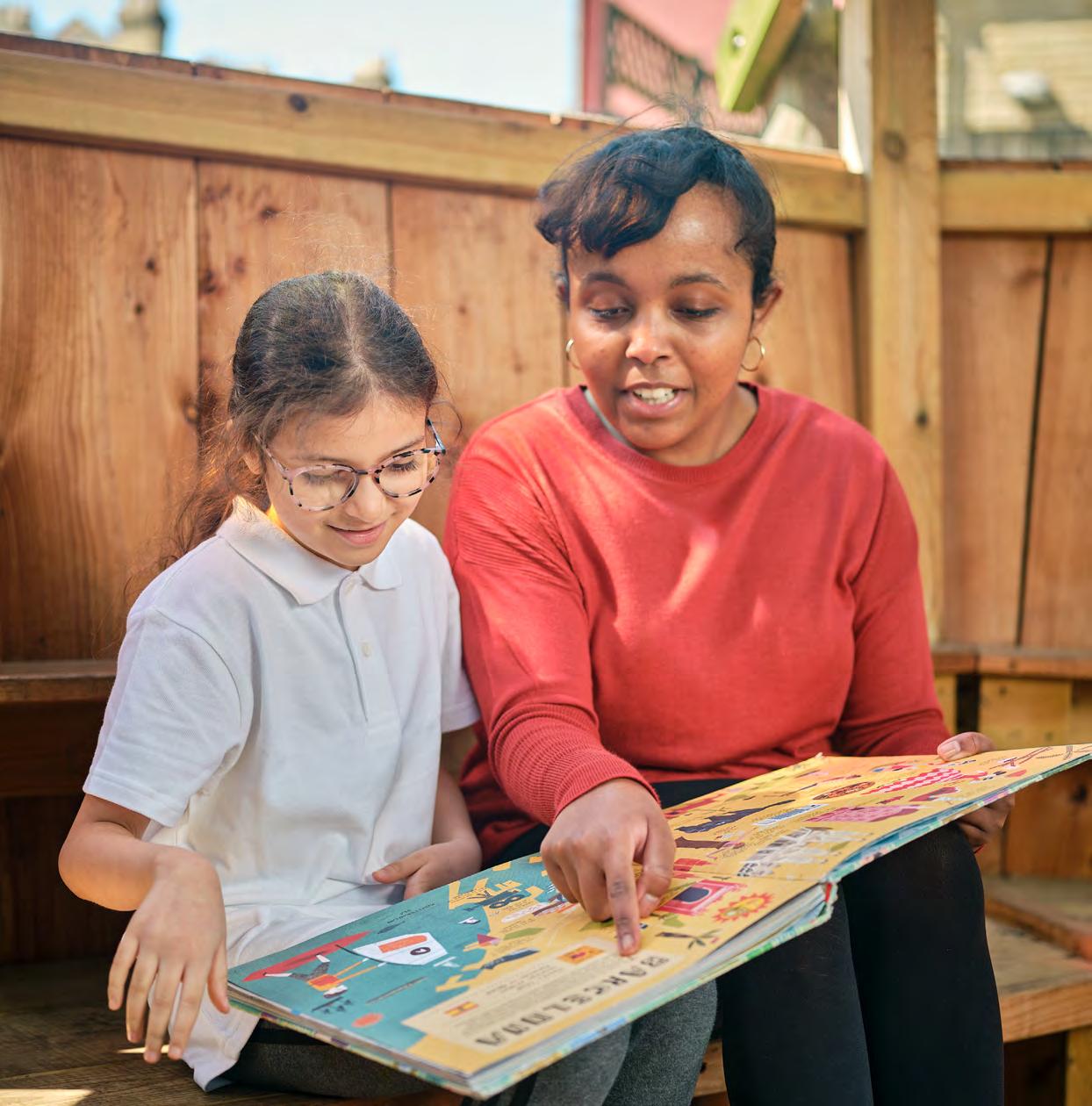
I have seen a huge difference in the children’s attitudes around reading. They are now choosing their own texts in the classroom and are being far more vocal now that they consider themselves to be ‘good readers’. Most of our year 3 pupils on the reading programme have made between 4-5 months progress over the 12 weeks, and two formerly disengaged boys have made 11 months and 16 months progress respectively – it’s fantastic!” – Teacher at a Bookmark partner school
We want every child to read
We improve children’s literacy by promoting a reading for pleasure culture in primary schools, with a focus on supporting children in the most disadvantaged communities
We will achieve our mission by implementing the following five pathways to reading:
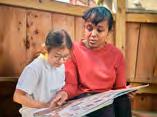

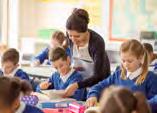
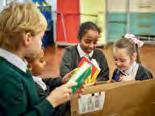

Our mission brought to life: Bookmark’s programme has recently helped a school improve their Ofsted ratings from ‘Inadequate’ to ‘Good with Outstanding leadership and management’. Their recent Ofsted report even stated: “this school lives and breathes reading” – a monumental whole school change and testament to what can be achieved with help from key partners, friends and the community.
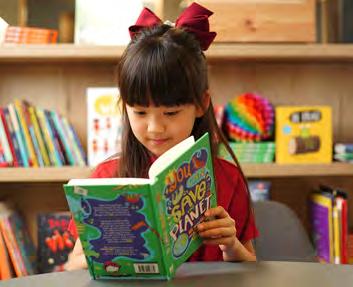
This work will be underpinned by our 10 literacy programmes:
1. One-to-one Reading Programme 2. Literacy Partner Programme 3. Your Story Corner
School Network Programme 5. Rocket Packs
6. Grants and Support Programme
7. Story Starter Programme
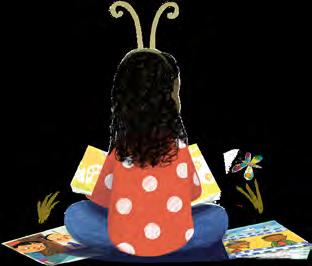
8. The Story Corner Magazine ook clubs amily Engagement Programme
Our
values matter; they support our vision, shape our culture and reflect what is most important to us.
» We care deeply about what we do; it is our driving force
» We believe in the potential of all children and the power of communities to support them
» We fuel our work with optimism and a positive energy, supporting each other through challenges and celebrating our achievements

» We are interested and constantly learning so that we can adapt to improve the support we provide
» We ask questions and contribute outside of our specialties to develop great ideas
» We have the courage to challenge the norm in search of a better alternative

» We work hard – and smart – to fulfil our promises and make an impact
» We are proud of what we have achieved and we know there is always more to do
» We each play an important role in Bookmark’s story and consider how our actions impact the charity’s vision

We are a
» We work together with our volunteers, schools, partners and supporters
» We embrace diversity and celebrate differing perspectives and backgrounds
» We listen well and communicate clearly to seek understanding and achieve better outcomes
We act with integrity
» We are trusted to always keep safeguarding at the heart of what we do
» We are honest and open within our teams and across our communities
» We are professional and hold the highest expectations of ourselves and one another


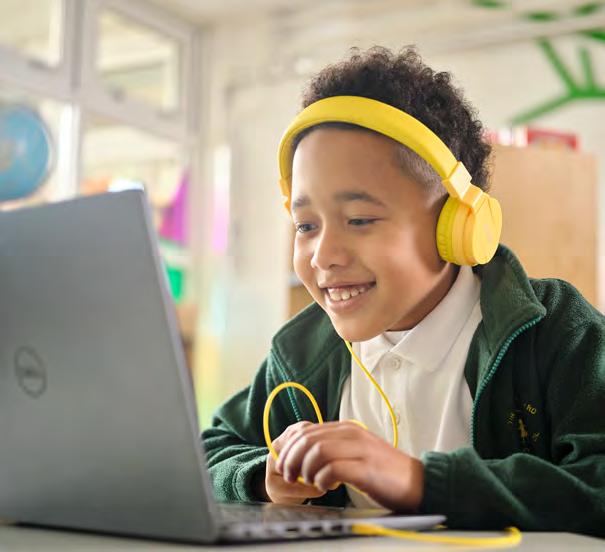
Reading for pleasure is an evidence-based approach to improving children’s literacy. Research shows that children who enjoy reading are nearly four times more likely to read above the level expected for their age.10 When children read for pleasure, they tend to read more often and gain greater confidence in their ability. This leads to improvement in reading skills and cognitive skills.11 As a result, reading for pleasure is purported to support progress in attainment across the curriculum.12
The Organisation for Economic Cooperation and Development (OECD) reports that reading enjoyment is a more significant factor in children’s educational outcomes than their socio-economic background.13 For many children experiencing disadvantage due to their socio-economic circumstances, reading for pleasure could be a catalyst for greater educational attainment. This is demonstrated by Sullivan and Brown in their research,
“The impact of reading for pleasure is four times more powerful on progress in vocabulary, mathematics, and spelling at age 16, than that of parental education or parental socioeconomic status.” 14
which shows that: “The impact of reading for pleasure is four times more powerful on progress in vocabulary, mathematics, and spelling at age 16, than that of parental education or parental socioeconomic status.” 14
The benefits of reading for pleasure extend beyond the individual. It has been estimated that if all children were to read for pleasure almost daily, the economic impact of their "increased incomes would raise the UK’s GDP by as much as £4.6 billion per year within a generation."15
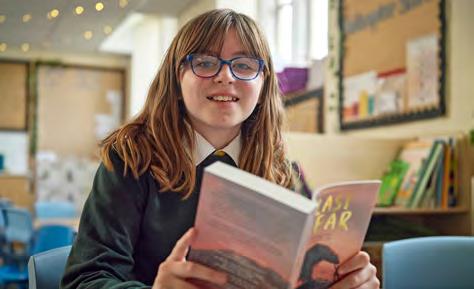
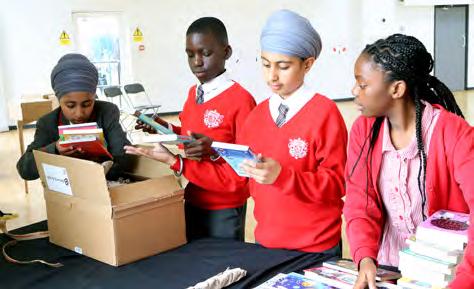
It is far more than just a reading intervention – it is an opportunity to talk, to be listened to, to discuss, to share opinions, to learn to trust again, to make a friend, to read and to just laugh."
– Teacher from Paxton Primary School, London
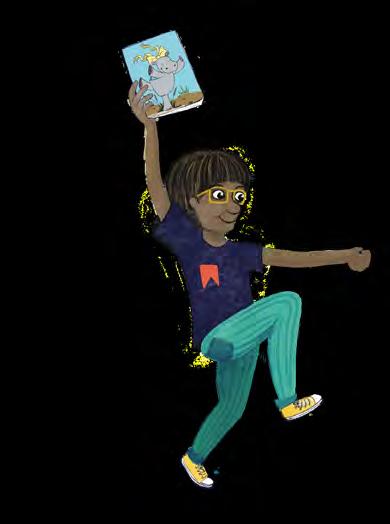
Taking a whole school approach to promoting reading for pleasure
A whole-school reading culture puts reading at the heart of learning and celebrates, champions and encourages reading at every opportunity within the school environment. Creating a positive reading culture requires collaboration across the school and its wider community and helps to foster greater reading for pleasure. Children who are part of a rich reading culture will be more likely to identify as readers, be motivated to read and enjoy reading.
The following evidence demonstrates the factors that influence reading for pleasure in schools and support a whole-school reading culture. Our programmes take these factors into account. They are constantly evaluated to make sure we focus on those activities that have the greatest impact on improving children’s literacy.
• One-to-one reading support and positive reading role models
A review of evidence on one-to-one tutoring shows that it is beneficial for improving pupil outcomes, particularly for children who may be struggling.16
• Engaging reading spaces and high-quality, diverse reading resources
Creating engaging reading spaces is vital. Children who access their school library are more likely to have positive reading attitudes and behaviours. These include finding enjoyment in reading, reading daily and perceiving themselves as good readers.17
Reading spaces should be stocked with high-quality, varied and diverse books which present children with choices for their reading. Many types of texts are found to support
reading for pleasure: non-fiction, fiction, poetry, comics and graphic novels.18 Books that allow children to explore diverse representations, including finding characters representative of themselves, are also important.19
• Teacher training and resources
Equipping teachers with the knowledge and resources to support reading for pleasure in their pupils is essential. Teachers' knowledge of the books available to their pupils and their understanding of their pupils as readers, are key components of reading for pleasure pedagogy. 20 Effective reading spaces, diverse resources and teacher knowledge combine to form the foundation on which schools can raise the profile of reading.
• Creating a reading buzz in schools
Creating a reading buzz allows children to see reading as an enjoyable and exciting activity that they want to engage in. 21
• Family and parental engagement
Family and parental engagement plays a fundamental role in promoting reading for pleasure and improving literacy development. The role of family and parental engagement is both direct, such as a parent reading with a child, and indirect, such as a parent's attitudes towards reading. 22 Parental involvement is critical in supporting a child's reading and, by extension, critical to a flourishing whole-school reading culture.
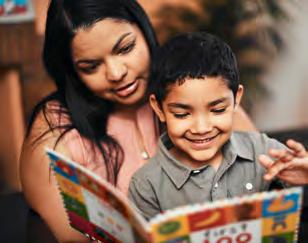
10 Clark, C. & Teravainen-Goff, A. (2020). Children and young people’s reading in 2019: Findings from our Annual Literacy Survey. National Literacy Trust.
11 BookTrust (2023). The benefits of reading.
12 The Open University (2022). Developing Reading for Pleasure: Engaging young readers.
13 Department for Education (2012) Research evidence on reading for pleasure: Education standards research team.
14 BookTrust (2023). The benefits of reading.
15 WPI Strategy (2021) The power of reading for pleasure: Boosting children's life chances. British Land and National Literacy Trust.
16 Education Endowment Foundation (2021). One to one tuition.
17 Clark, C. & Teravainen-Goff, A. (2018). School libraries: Why children and young people use them or not, their literacy engagement and mental wellbeing. National Literacy Trust.
18 Brownsword, S., Merchant, S., & Charlesworth, R. (2023). Children's literature and other texts. In T. Cremin, H. Hendry, L. Rodriguez Leon & N. Kucirkova (Eds.) Reading Teachers: Nurturing Reading for Pleasure. Routledge.
19 Teravainen-Goff, A., Clark, C. & Brown, A. (2023). Young Readers Programme: Developing a love of reading in primary schools. National Literacy Trust.
20 Cremin, T., Hendry, H., Rodriguez Leon, L., & Kucirkova, N. (Eds.). (2023). Reading Teachers: Nurturing Reading for Pleasure. Routledge.
21 Mukherjee, S. J., McGreevy, C., & Williams, C. (2023). Celebrating reading. In T. Cremin, H. Hendry, L. Rodriguez Leon & N. Kucirkova (Eds.) Reading Teachers: Nurturing Reading for Pleasure. Routledge.
22 Levy, R., Doyle, J., & Vollans, E. C. (2023). Parental and community involvement. In T. Cremin, H. Hendry, L. Rodriguez Leon & N. Kucirkova (Eds.) Reading Teachers: Nurturing Reading for Pleasure. Routledge.
We want every child to read
» Many children leave primary school with poor reading skills which directly contributes to poor educational attainment, lower literacy in adulthood and barriers to success in life.
» Many children do not have opportunities for one-to-one reading or reading role models. Less able readers have fewer opportunities to improve their reading.
» Many children do not enjoy reading. Many children do not own their own book or have access to a library. Many children struggle to see themselves in what they read.
» Schools have limited resources and support to develop reading for pleasure
» Our team – with strong expertise and experience of partnering with schools to develop offerings that are informed by datadriven insights, a strong evidence base, ongoing evaluation and impact measurement.
» Our volunteers – who are enthusiastic, trained and supported by Bookmark to volunteer online and in-person.
» Our technology – which is utilised to support effective and responsive programme booking and delivery, including via an online reading platform.
» Our resources – curated, high-quality, and diverse books and reading resources.
» Our training – CPD for teachers and support for family engagement.

1. Our reading programme, in which trained Bookmark volunteers deliver one-to-one reading sessions to children aged 5-10.
2. Curation and delivery of new, high-quality and diverse books and reading resources, including our own termly The Story Corner magazine, which enhance reading spaces in schools.
3. Provision of grants, literacy consultancy and training resources, with a focus on facilitating teacher training and access to CPD.
4. Organisation of events, such as book clubs and author visits, with a focus on schools to generate a buzz around reading.
5. Collaborating with schools to promote family and parental engagement.
Alyssa, a pupil from The Russell Primary School in London, sent us a picture about her journey with Bookmark.
Me before Bookmark



We improve children’s literacy by promoting a reading for pleasure culture in primary schools, with a focus on supporting children in the most disadvantaged communities

» Children attend reading sessions with a volunteer, engaging in one-to-one reading support.
» Children and schools have brand new, diverse, highquality books and reading resources, including The Story Corner magazine.
» Schools access grants, literacy consultancy support and training resources to support reading for pleasure and build whole-school reading cultures.

1. Schools improve their one-to-one reading support and children connect with positive role models.
2. Schools improve their reading resources and reading spaces to encourage children's reading for pleasure.
3. Schools have access to quality teacher training and resources, which improve their approach to reading for pleasure.
4. Schools generate a buzz around reading.
5. Schools improve parental and family engagement with reading.
More children leave primary school having discovered the joy of reading, which better sets them up for success.

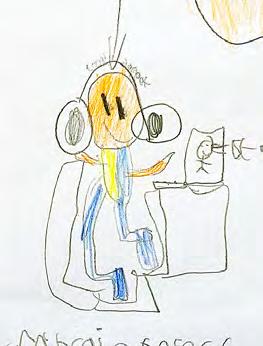

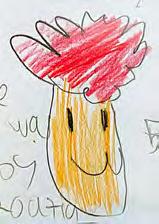
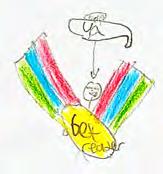
We aim to meet the needs of children who face the greatest barriers and for whom the benefits of reading can be most transformative. We provide support to those children through our partner schools in some of the most disadvantaged communities.
To be eligible for support, our partner schools must meet the following three criteria:
1. Lower than average Key Stage 2 reading attainment
2. Higher than average proportion of children eligible for pupil premium
The Pupil Premium grant is government funding to improve educational outcomes for disadvantaged pupils in state-funded schools in England.
3. Higher than average Income Deprivation Affecting Children Index (IDACI) score
This allows us to understand how many pupils at each school live in the most deprived areas.
Based on these three criteria, we expect there to be over 3,000 eligible schools. This strategy outlines our approach to expanding our reach to support these schools.
Our regional expansion will focus on those areas in which we can have the greatest impact. We will conduct a detailed needs analysis, combining our eligibility criteria with an assessment of the support already provided to an area by other charities and organisations. Our aim is to minimise duplication of effort across the sector and make sure our combined support reaches as many areas as possible.

The books have filled our classroom book-corner shelves, are used every day by the children and have had a huge impact on reading within my class. There is something for every ability level." – Teacher at a Bookmark partner school

500,000 children will benefit from a Bookmark programme
We will expand our school and volunteer communities so we can support more children.
Grow our partner schools to 1,000
We will do this by:
• identifying and expanding into areas of greatest need (place-based change)
• building local and national relationships to facilitate school introductions and engage a wider network of schools
• continuing to build upon strategic collaborations within communities
• developing our partnership offering
• developing our authoritative voice in the sector.
Evolve our volunteering opportunities to engage 4,000 volunteers
This will enable us to deliver more one-toone reading sessions. We will do this by:
• increasing brand awareness of our volunteering opportunities
• improving the flexibility of our volunteering opportunities
• delivering exceptionally high-quality service to volunteers
• involving a more diverse community of volunteers, with a particular focus on:
» youth volunteering
» workplace volunteering partnerships
» later-life volunteering
» civic volunteering initiatives
offering volunteers a vibrant choice of communications, peer-to-peer engagement and ways to contribute time
building collaborative volunteering partnerships across the charity sector
growing school-based volunteering partnerships.
We will optimise our programmes and embed these further in schools to provide more impactful and tailored support on a one-to-one and schoolwide level.
We will do this by:
• continuing to make sure our team has appropriate literacy expertise
• developing our innovative and impact-led programmes of work to provide tailored support to our partner schools
• continuously evaluating our programmes to improve long-term outcomes, including working with third party impact specialists to critique and make recommendations to our programmes
• developing a better understanding of how we can make a difference and deliver effective change
• continuing to develop our service lines so schools can evidence their focus on literacy to Ofsted
• tailoring our one-to-one reading programme for children most in need of support.
We will do this by:
• becoming a trusted literacy partner for our partner schools
• making sure our team has appropriate operational capacity to expand delivery in our partner schools
• building partnerships with charities and organisations to enable us to scale up delivery, while making sure we do not duplicate services that already exist
• making sure our programmes are cost effective and benefit from economies of scale so that we can maximise the impact of every pound donated to us.

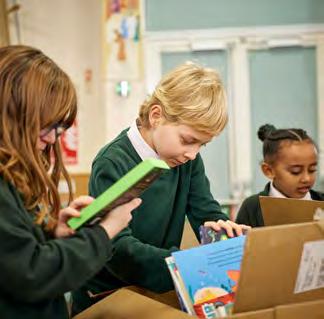
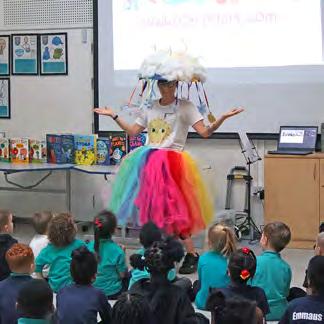
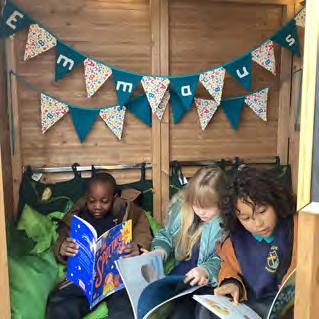
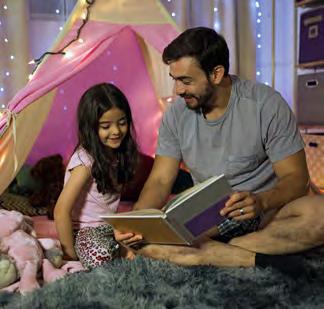
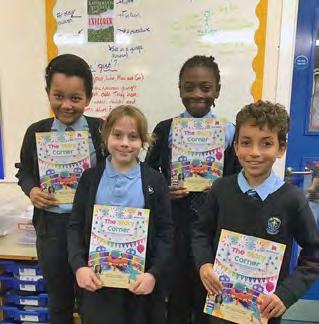
Teacher CPD and grants
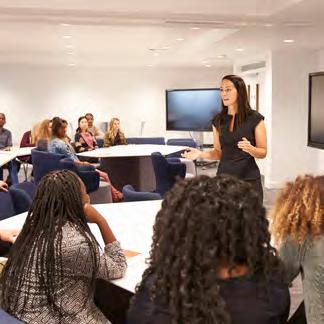
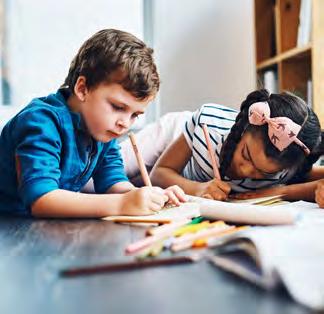
Your Story Corner Programme and library enhancements
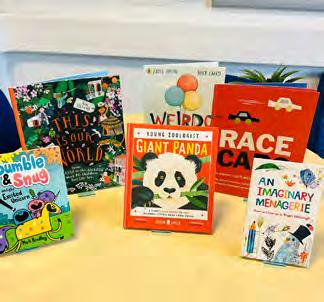
One-to-one reading programmes
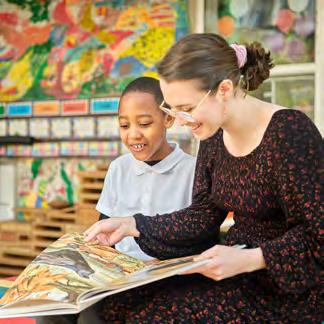
Story Starter Programme
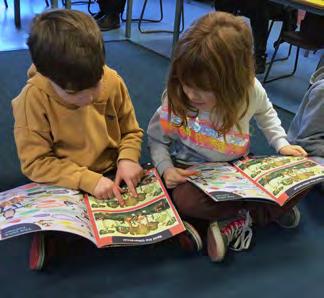
Our programmes are designed to nurture an enjoyment of reading so that children read more, gain more confidence as readers and, ultimately, improve their reading skills. We deliver our programmes in partnership with primary schools, with a focus on supporting children in the most disadvantaged communities. We pride ourselves on being innovative and developing new programmes
Our reading programmes involve 30-minute sessions each week with a child who needs extra support with their reading. This can be either face-to-face in a local primary school or virtually through our secure online platform.
Volunteers lead the delivery of our reading programmes, bringing with them a breadth of experience and representing a variety of life stages. Not only do our volunteers help with improving children’s reading, but they are also positive role models.
Sector-wide changes in volunteer capacity due to commitments in retirement, economic pressures and volunteer preferences have become increasingly evident in recent years. As such, we will continue our work to diversify our community of volunteers to meet the growing demands for reading programmes.
» We will deliver 165,000 reading sessions.
of work, as well as continually evaluating our work to make sure we have maximum impact. Ultimately, we want to improve literacy through tangible impact when building a whole-school reading culture.
Our targets for each of these programmes relate to what can be achieved in the next three years.
Following an in-depth literacy consultation, we provide a detailed and tailored action plan to each school to help them deliver improvements in whole-school reading cultures. This action plan is accompanied by targeted funding of up to £10,000 per school.
Our Literacy Partner Programme is also an incubator for developing and evaluating new service lines. This gives us the opportunity to test different ways of embedding a wholeschool reading culture in a school. Once new service lines have been tested on a small scale, and an effective impact has been seen, these service lines can be offered as part of one or more of our programmes.
» We will support 150 schools through our Literacy Partner Programme.
"If you walk down our corridors, you are surrounded by books and will come across several Bookmark volunteers sharing stories, playing games and just chatting freely with the children. They are part of our school family and have enabled us to empower the children with opportunities for high-quality book talk."
– Teacher from Paxton Primary School, London
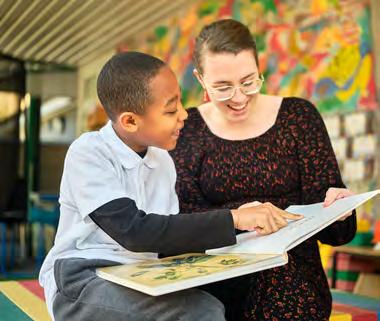
We create engaging reading spaces with highquality reading resources. This includes 200 new books, teacher CPD resources and engaging materials. These spaces foster an environment for children to become confident young readers and inspire a lifelong love of reading.
» We will expand to nine new areas, supporting 500 schools with our Your Story Corner Programme.
"All my children have loved engaging in age-appropriate books, and the enthusiasm and enjoyment is still going strong. The book-corner books sent were a lovely quality and an amazing, diverse range. One Sikh boy commented ‘that character on the front cover is wearing a turban and looks like me'." – Teacher at a Bookmark partner school
This programme is designed to build on the foundations of the Your Story Corner initiative by providing sustainable ongoing support to schools. This is to continue the improvement of whole-school reading cultures. Each school within the network benefits from up to £1,000 of resources per year, plus access to resources and training developed by us. The programme will provide networking opportunities for teachers and literacy leads to collaborate and share best practice.
» We will have 500 schools in our School Network Programme.
Our termly magazine provides high-quality reading materials for children to take home. The magazine is designed and distributed to children who may not have a book at home to prevent learning loss outside school settings. It is distributed through schools and community settings, including food banks, warm banks, prisons, hospitals and refuges.
» We will distribute 2,000,000 copies of The Story Corner magazine.
"The Story Corner magazines are amazing! The cover on the latest issue was beautiful. They are used during parent library sessions, given out to the school reading ambassadors, as well as displayed in the library and around school. The year 5 children were all also given a copy each to take home. The children love it, the staff love it and the parents love it!" – Teacher from Percy Shurmer Primary School, Birmingham
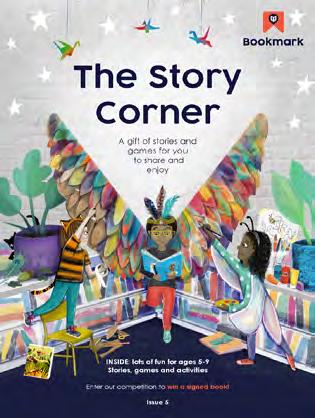
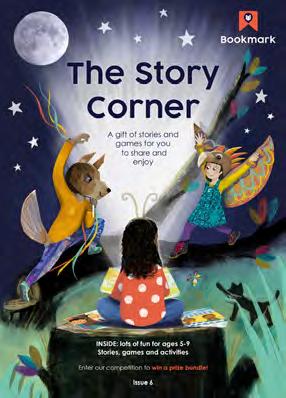
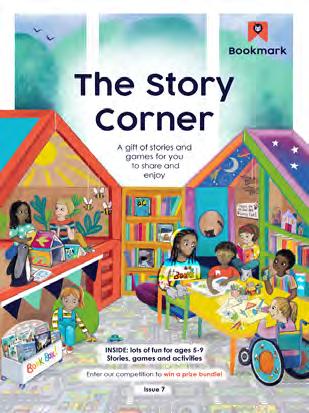
Schools are sent termly packs of new, high-quality and diverse books. Each of these packs is centred on a different theme, focusing on the type of books we know are often missing from school libraries (i.e. graphic novels, poetry, non-fiction). We invite a different figure or organisation, well known in the education or literacy space, to curate these book packs. The packs are sent out with our scrapbooks as part of a whole school reading challenge to help with embedding a rich reading culture.
» We will provide 1,500 Rocket Packs to schools.
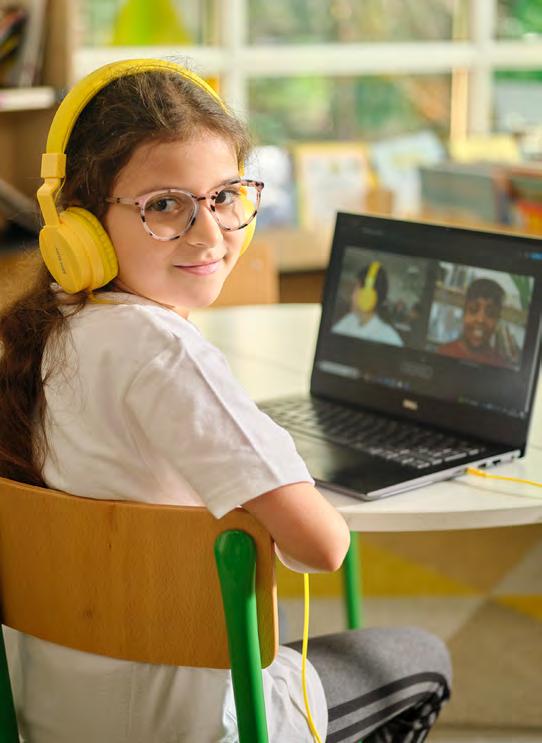
"I thought we were done after the first box and then, when the second box arrived, I was speechless for a moment because of our current financial situation, which I know so many schools are in. We are under a lot of pressure from policy, rightly so, that we allow our children to have the best reading opportunities possible, but that's not being matched by resources. It's such an enormous gift that you've given our children… We would never have been able to spend that amount of money on reading for pleasure at all for the foreseeable few years, let alone just on graphic novels. It is a huge gift and thank you to you and your donors."
– Teacher from New Christ Church Primary School, Reading
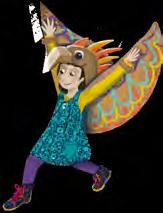
We are developing a range of book clubs to engage reluctant readers. Schools are provided with mini libraries in each genre, plus additional resources to spark a reading buzz. We provide a plan for 10 book club sessions so that teachers have a clear understanding of the outcome for each session. The book clubs have been designed to run termly.
» We will deliver 300 book clubs to schools.
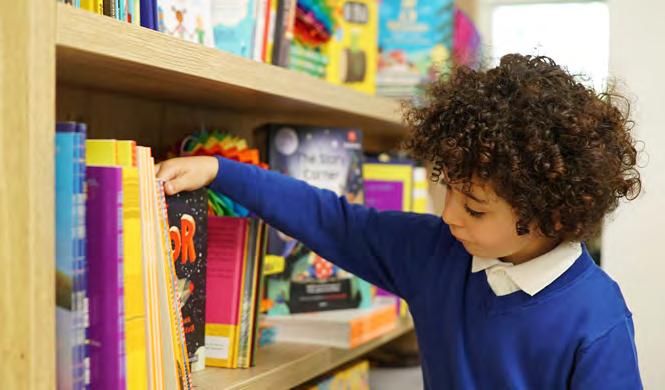
Our early years provision includes packs with resources for children aged 4-5. This is to help ignite the joy of reading from an early age and equip children with resources before starting at one of our partner schools. These packs have been created by following the government’s non-statutory curriculum guidance for the Early Years Foundation Stage. They include a book, an early years version of our The Story Corner magazine, stationery, storytelling props and family engagement resources to inspire reading enjoyment at home and in the classroom. We want all children to start school with the resources they need to set them up for success.
» We will deliver 12,000 Story Starter packs to children starting school.
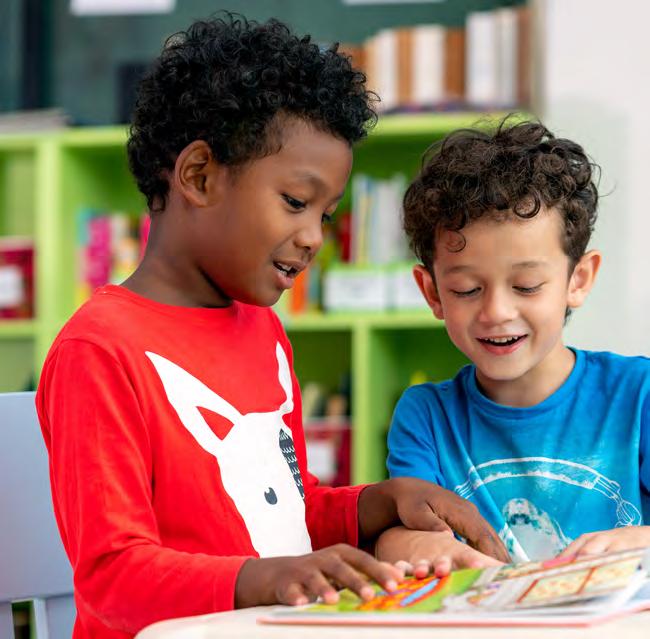
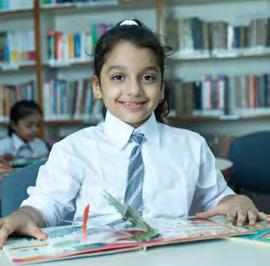
We provide schools with CPD grants and access to memberships with third-party organisations to assist them with embedding a whole-school reading culture in their school. We also run webinars, distribute videos and provide other resources to help with teacher training.
» We will provide 200 grants to support whole-school reading cultures and CPD initiatives.
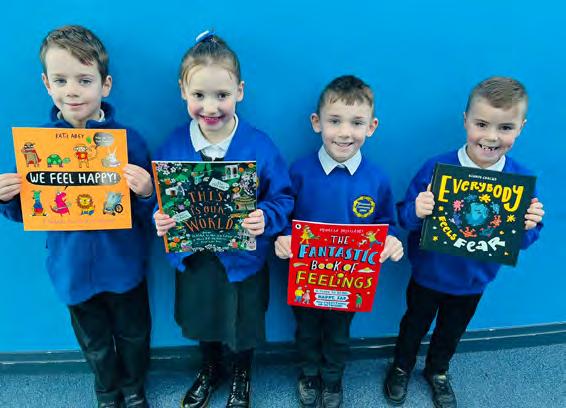
We understand the challenges that many schools face with family engagement. We will provide support in disadvantaged communities by distributing home resources and video content to empower family members to support their child’s reading for pleasure and become reading champions at home.
We will build strategic collaborations to enhance our work and amplify other organisations’ work in this area.
» We will provide access to our home resources for 40,000 families.

We are a performance-led organisation, with targets and KPIs at our core. Ultimately, it is this that allows us to reach more children. We make sure our programmes are cost-effective and benefit from economies of scale so that we can maximise the impact of every pound donated.
This strategy sets out how we aim to build on these solid foundations to increase the support we offer.
Our team and volunteers are what makes Bookmark, Bookmark. We aim to create an environment in which all individuals can make the best use of their skills. This is free from discrimination or harassment, where all decisions are based on merit.
We will drive engagement, enhance culture and embed people processes into our charity, with focuses on:
• recruitment and retention
• learning and development
• reward and recognition
• diversity and inclusion
• strong performance-management approaches to develop talent and drive results.
We will build a compelling brand to grow our communities of schools, volunteers, partners and supporters. We will:
grow our brand through an omni-channel approach and develop new agency partnerships to raise awareness, particularly about our need for volunteers
• build PR routes and partnerships to drive our position in the sector as a school literacy partner of choice
• become an authoritative voice in the literacy sector through our visibility, programmes of work and the impact we deliver
• brand tracking – we will monitor the efficacy of what we do, so that we deliver maximum impact for the investments we’re making.

Technology is at the heart of what we do. This makes sure we operate efficiently and make the most of every pound donated to supporting our mission. We will:
• where possible, underpin each of our programmes with a technology-first approach for a smooth, efficient and cost-effective delivery
• look at new ways to support our work with innovative technology solutions, including the integration of AI and future technologies where possible. This is to help us grow and retain our pool of volunteers, along with supporting our schools to maximise efficiency, sustainability and user experience maximise our systems’ capability to provide an accessible, protected and safe environment for our stakeholders. Safeguarding is always of paramount importance to us.
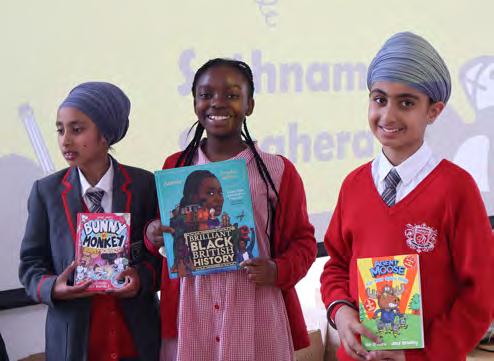
We are an efficient and data-led organisation. We will: continue to review our target operating model to make sure we are executing our strategy efficiently
• retain a laser-focus on targets and KPIs
• make sure our decisions are data driven to help us to continually improve and develop our processes
• create an annual business plan; this will be guided by this strategy document and will be approved by our trustees
• empower volunteers to maximise the impact they can deliver through investment of their time and make sure we are using their time efficiently.
We view literacy as a national priority. We need to work across the sector to maximise our reach and deliver change. We will:
• build relationships in the sector to support the children who need us most. This will include, but not be limited to, multi-academy trusts, charities, local authorities and community organisations
• foster strategic collaborations to gain expertise in helping us to provide the best literacy support possible
• deepen partnerships across private and public sector to grow and diversify our volunteer community.
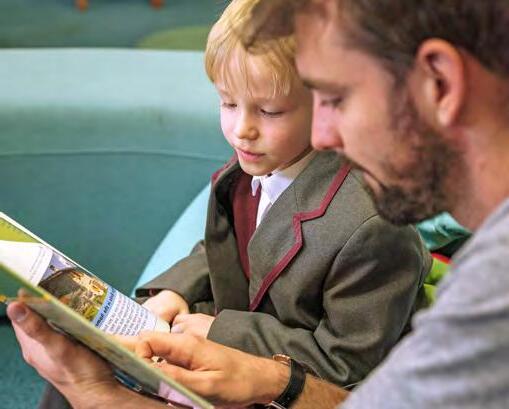
Building a stable income base allows us to continue to deliver our impactful work. We will:
• continue to diversify our fundraising channels to enhance financial resilience and sustainability continue to build strong relationships with existing and prospective supporters that drive impact in the communities we serve
• maintain transparency and accountability in our fundraising practices, upholding the highest standards of ethical conduct, financial stewardship and governance continue to nurture our relationship with Literacy Capital plc, which generously supports our overheads. This means that every additional pound raised goes directly to delivering our mission, helping us to balance passion and ambition with a sound operating model. As part of our commitment to establishing diverse and sustainable income sources, we will aim to make sure that our partnership with Literacy Capital plc represents less than 50% of our income.

"My volunteer has made me a better reader because I hated reading and now I love it”
– Child on a Bookmark programme
We will employ environmentally friendly practices throughout our operations. Our programmes will include high-quality literacy materials that stand the test of time and we will continue to work alongside partner organisations to recycle pre-loved literacy materials into schools.
We want every child to read to set them up for future success. Our literacy programmes are designed to support this and are measured by changes in pupils’ reading attitudes, behaviours and skills as a result.
We will make sure our programmes reflect up-to-date research. We will also continually measure and evaluate our impact to provide programmes that have the greatest impact on improving children’s literacy.
We will produce an annual impact report that sets out how we’re working towards our aims of delivering impactful and cost-effective programmes to change children’s life stories.
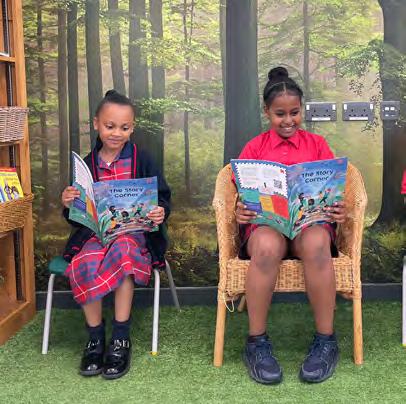
We are striving to become a more diverse and inclusive charity to better support the children who need us most in some of the most disadvantaged communities.
We will continue to make sure that our team and volunteers reflect the diversity of the population in the UK.
We will build on our track record of providing high quality and diverse literature which allows the children we support to see themselves in books and materials. We will carry on evaluating the changes we make to school libraries when it comes to the diversity of their literature.
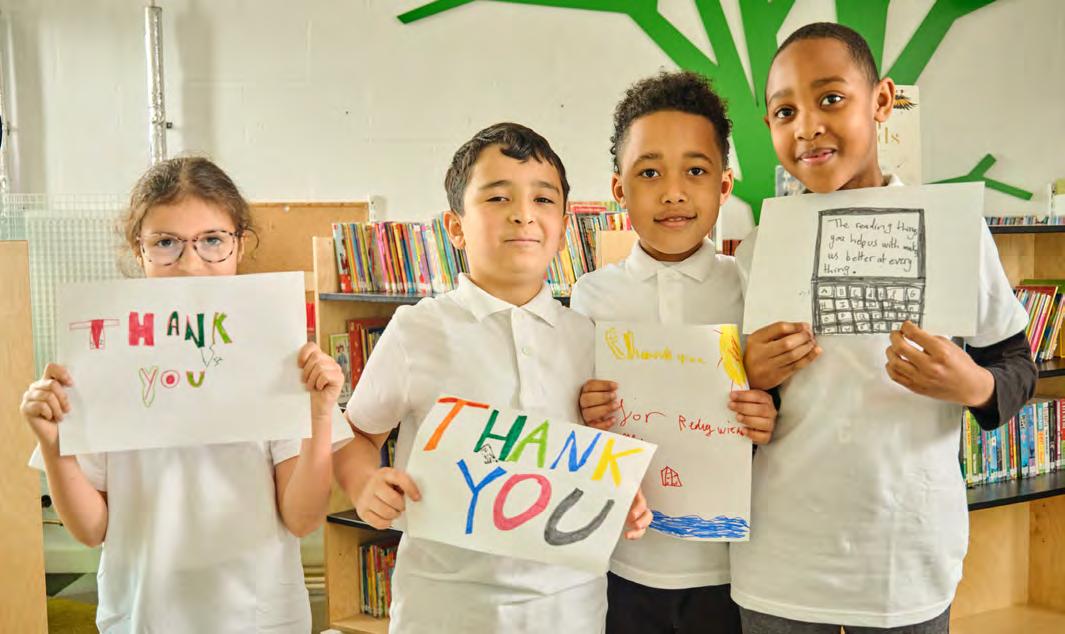
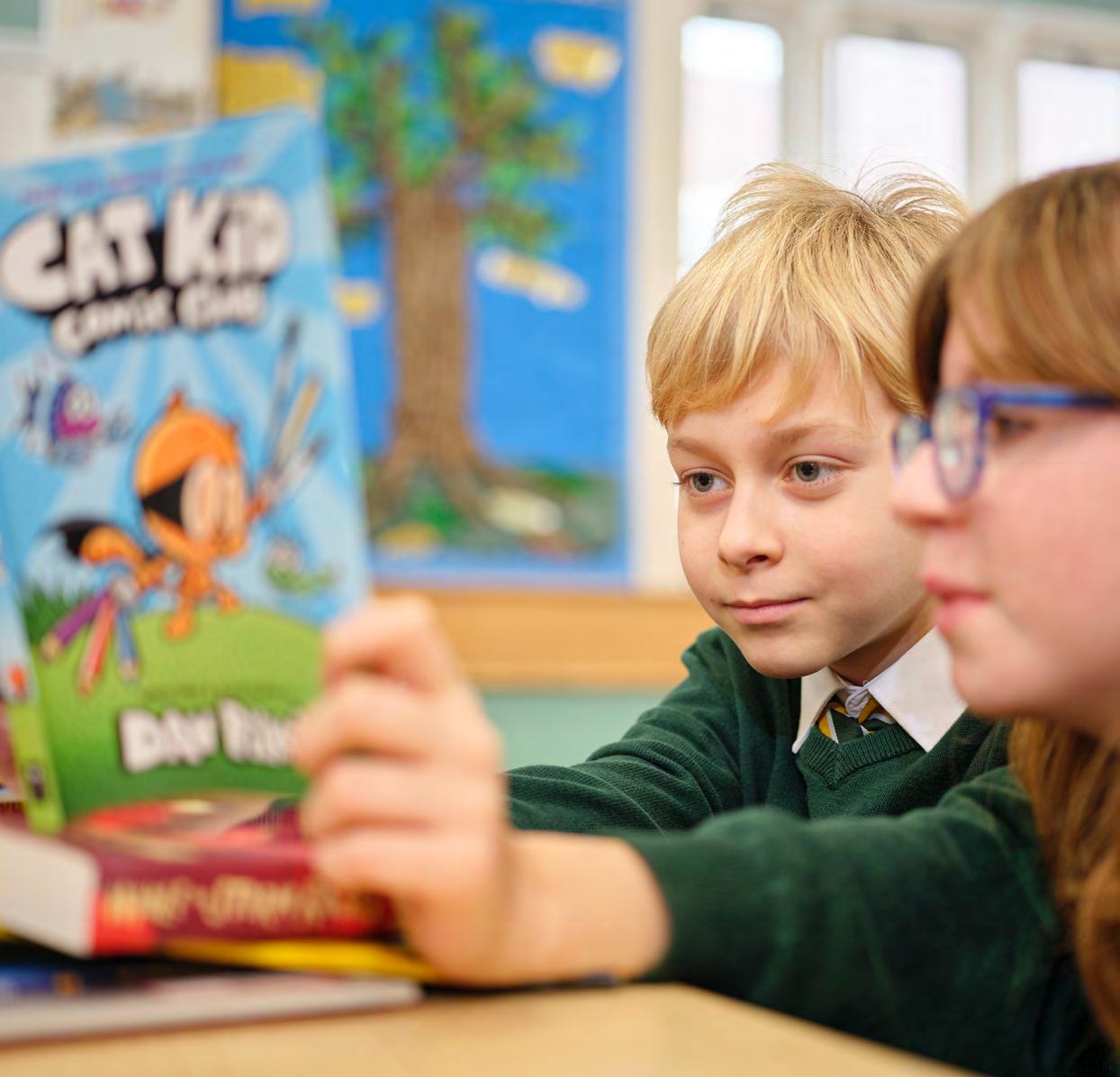
I just wanted to say that we are so grateful here at Heckington for the amazing donation of books. This sort of thing does not happen for us, we are not this lucky. I can’t even begin to describe the impact these books will have.
The staff and children at our school honestly can’t thank you all enough for the diverse and engaging books that you have gifted to us. I can promise you that in this school you have changed lives.” – Teacher at a Bookmark partner school
@bookmarkreading



@bookmarkreading
@bookmarkreadingcharity www.bookmarkreading.org
